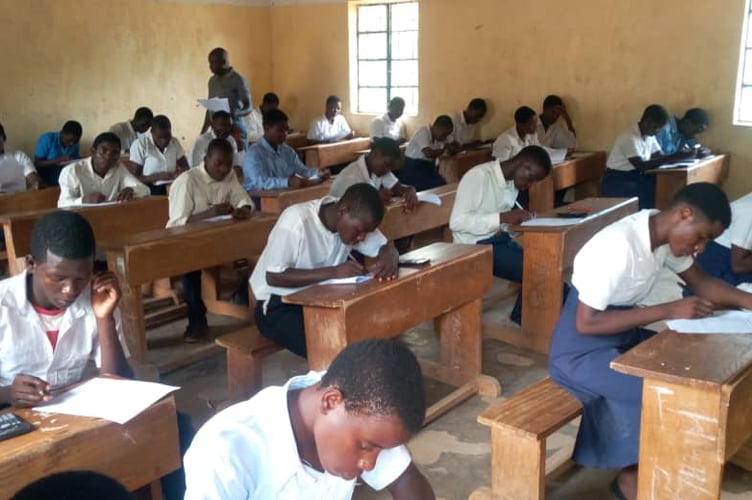The former headteacher of Frensham Heights School has inspired Farnham Rotary Club to continue the support of schools in an African country
In 2015, Andrew Fisher, who left the private school in Rowledge last year, set out on a mission to improve secondary education in Malawi.

Moved by the challenges faced by children in the country, he spent 10 freezing nights sleeping rough in the woods overlooking Frensham valley to raise funds for a new school.
His determination paid off as he raised over £2,000, marking the beginning of something much bigger.
Malawi, one of the world’s most impoverished nations, faces significant challenges.
With 40 percent of its population under the age of 18 and consistently ranked among the lowest in GDP, access to quality education is a struggle, especially in rural areas.
Mr Fisher’s initial effort was just the spark needed to ignite real change.

By 2019, his vision had evolved into the Malawi Schools Trust, an organisation dedicated to supporting and developing secondary schools in remote parts of the country.
The trust works closely with local communities, listening to teachers, parents, and tribal elders to provide what is truly needed - whether it be classroom materials, buildings, transport, or solar-powered electricity.
Recently, Peter Everett, chair of the Malawi Schools Trust, shared an update with the Rotary Club of Farnham, detailing the remarkable progress made over the past five to six years.

The Rotary Club has played an important role in this success, raising £2,000, with hopes of doubling it through a Rotary District grant. These funds will go toward purchasing locally made school desks, reusable sanitary pads, bicycles, and bursaries for students in need.
So far, the Malawi Schools Trust has completed work on two schools, All Saints in Mtunthama and Mikuyu School, while starting work on two others.
Mikuyu School had only 50 pupils in 2020, while it now has 260 pupils. All Saints School in Mtunthama, which started in 2015 with about 300 pupils, now has more than 1,100.

For many students, the resources are life-changing. Until recently, many had no choice but to sit on the floor during lessons. Thanks to new desks, they can now sit comfortably and focus on learning. Similarly, long daily walks of up to 12 km each way made it nearly impossible for students to complete homework. The introduction of bicycles has eased their journey, allowing them to conserve energy for their studies. Solar power has also transformed evening study sessions, giving students a chance to do their homework after dark.
A spokesperson for the group said: “What we take for granted sometimes cannot even be dreamed of in such circumstances without the inspiration and support from elsewhere.

“Intervention tends to last for about four years, only leaving when the schools are sustainable and able to carry on through financing themselves. With the materials they provide the community constructs the buildings, services and bikes meaning that some long term development of these rural communities can also occur.”




